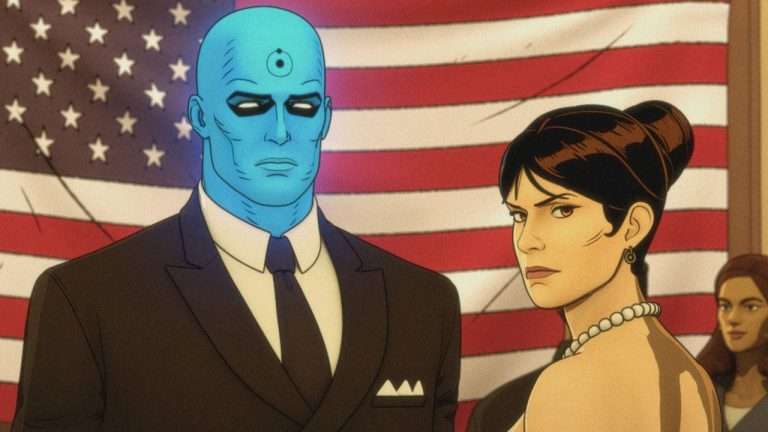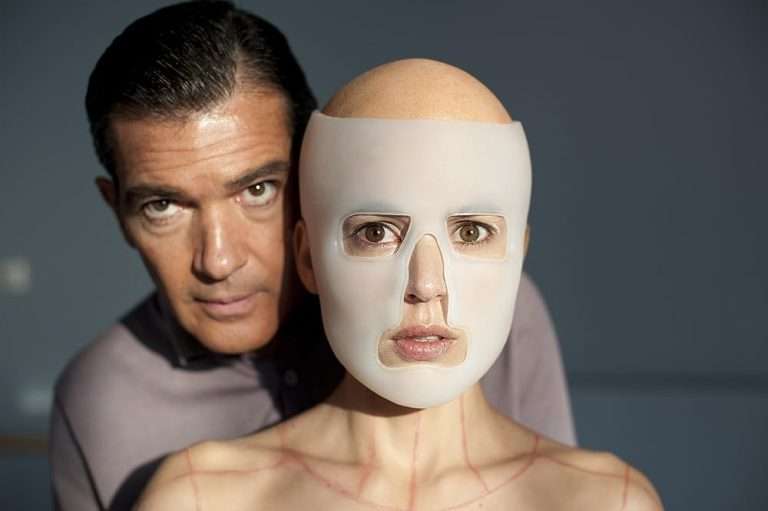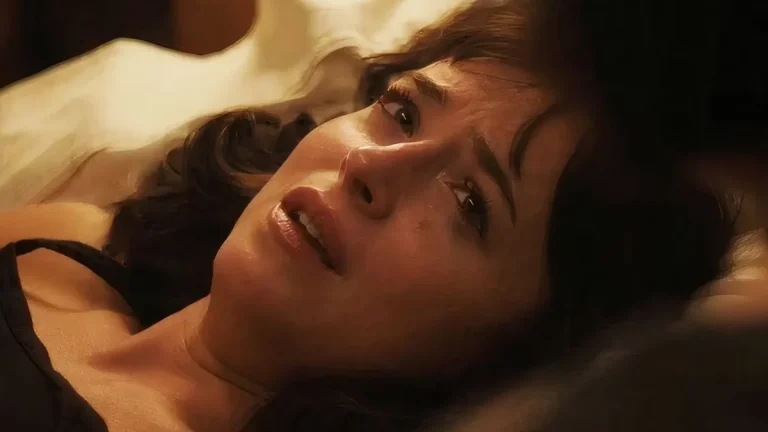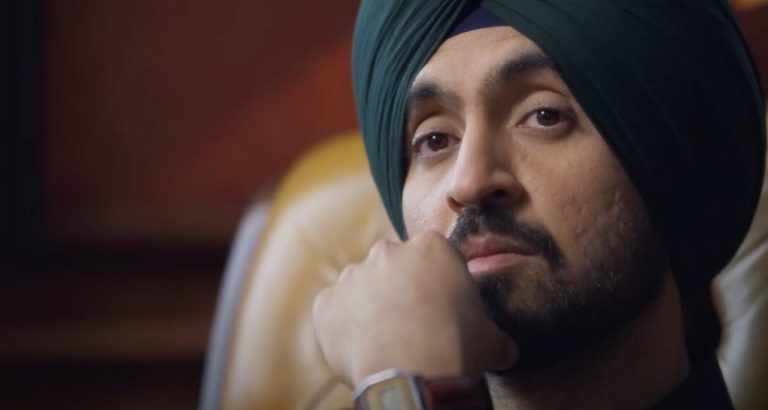While the new Godzilla: King of the Monsters movie delivered volumes of blockbuster monster fights, Godzilla-sized bitchslaps, and the usual poorly written, predictive plot structure, it’s narrative (unintentionally) cuts deep into the new-age ecological ethics and redefines our perspective of natural balance.
Godzilla: King of the Monsters starts off 5 years after the events of the first film. In the aftermath of a major skirmish between Godzilla and a giant bug, San Francisco is in ruins and the world becomes aware of the existence of Titans. Governments are bent on locating these monsters and Emma Russell, a paleobiologist is kidnapped along with her daughter Madison by an eco-terrorist organization led by Alan Jonah (aka Tywin Lannister). Their goal is to awaken all dormant Titans so they can reclaim the planet and therefore save it from the impending ecological catastrophe caused by mankind. Monarch, a governmental agency that tracks and monitors Titan activity recruits Mark Russell, Emma’s ex-husband to track down the eco-terrorists and rescue Emma and their daughter. The two had a son, Andrew that died during the San Francisco attack 5 years ago, which makes Mark hate the likes of Godzilla.
Related to Godzilla: King of the Monsters – Kong: Skull Island (2017): Monster Entertainment, Delivered Right
The first major plot twist is when Emma is revealed to be a double agent for the eco-terrorist organization and releases the biggest Titan, King Ghidorah on purpose as a necessary evil needed to save the planet. Emma sees this act as the only thing that could give meaning to her son’s death and that all potential human casualties are a sacrifice for the greater good, the survival of Earth.
Uncontrolled Ghidorah starts his rampage as he awakens other Titans to do his bidding and humanity puts all its money on benevolent Godzilla to save the day once again. Take note that after every fight Godzilla disappears and never interacts with the outside world, doesn’t attack humans, and spends most of his time chilling under the sea where he was worshipped eons ago. Sounds simple? Well, it’s not. Godzilla: King of the Monsters is actually a clash between two opposing radical ideologies, disguised as monsters and terrorist organizations beating the living shit out of each other.
The first one is labeled as eco-nazis, an extreme group that sees wiping out a better part of humanity as a necessary sacrifice. Their sole purpose is reestablishing what they perceive as the natural balance, as humans should be allowed to live in smaller, select numbers, under the bootstrap of greater forces in nature. This view allows Emma to go beyond all ethical limits, even to cause countless other deaths just like her son’s in order to justify saving the planet and putting humanity under check.
This view traditionally puts nature, as a depersonalized, all-powerful entity that maintains order regardless of humanity’s ethical stances. This ideology follows that no human sacrifice is great enough to protect this order because any deviation from this structure of power leads to disbalance, ecologic catastrophes and the destruction of the world. This abstract entity which is regarded as “nature” has absolute authority and ownership over the planet and its inhabitants.
Also, Read –
On the other side are Monarch, the organization whose agents see a symbiosis with Godzilla as the only viable choice, because it: 1) recognizes Godzilla as the only creature powerful to take down King Ghidorah and 2) the interests of humanity are not necessarily at odds with Godzilla’s, as long as mankind doesn’t piss him off too much. At one point in the movie, they compare it to a symbiosis between a lion and a mouse. Keep in mind that Godzilla has extremely large capacities for forgiveness, even ignoring the fact that the US army shot him with a thermonuclear bomb in an attempt to wipe out King Ghidorah. Now let’s discuss the core differences in these stances and their ideological stake.
The eco-nazi fraction within the movie sees mankind as a smaller part of a larger natural system, and when it deviates from its size it causes the entire structure to crumble, inevitably destroying everything within the system. Hence, the only solution is to decimate humanity and revert it back to its natural size. This radical move would return civilization back to the dark age wherein its primitive form, mankind could never threaten the natural order again. This transformation also means the return of plagues, high mortality rates, food shortages, and every problem we can associate with the middle age that technology has since solved. Second, when Emma Russell announced her betrayal and sets King Ghidorah free, she advised Mark and the members of the alternative fraction to take shelter at Monarch’s underground bunkers (whose capacities are limited and their locations are kept secret).
Here we catch a glimpse into the eco-nazi ethics – there is safety, comfort, and salvation for a privileged few while the rest should perish by chance for a greater picture, which seeks to limit mankind and prohibit any deviation from its natural size. This perspective sees human beings as numbers in a tightly kept deterministic system where men with tactical advantages (such as info on Monarch’s bunkers, better weapons, training, military intelligence) hold the reigns on mankind’s microcosmos while the entire human race in forever kept in its minimal size.
The Monarch fraction, aka the Godzilla-friendly team, maintains that humanity has over time outgrown and left the natural structure and functions as a separate structure outside the natural order. The only way of preserving the planet from mankind’s destructive growth if men, alongside Godzilla, take the mantle of Earth’s protectors. This, of course, requires further alienation from nature, because it implies greater use of unnatural means to combat Ghidorah (like bringing Godzilla back to life with another nuclear warhead) but is none the less needed to ensure survival.
Related to Godzilla King of Monsters – The Tale of Iya [2013] Review – A World of Natural Wonder Tinged with Mystery and Magic
In order for the Godzilla-Monarch coalition to succeed, it’s imperative that it’s viewed as a common goal both between Godzilla and men and not as a simple “return to order” restart button. From this perspective, mankind can maintain a mechanic, calculated and rational relationship with Godzilla, restrain itself and align its production in regard to the common goals of the Godzilla coalition, which also means putting a stop to the continuous damaging of the ecosystem. This brings us to the core issue of the film;
Both fractions see their champion monsters, Godzilla, and King Ghidorah as voices or representatives of Nature itself and recognize them as far powerful entities than humanity. The key difference is the question of balance – the eco-nazis are trying to return to what they perceive as natural and can justify any human sacrifice in the ethical sphere of their ideology, and Godzilla-friendlies are accepting that the old natural order has ended a long time ago and that the world needs to redefine the meaning of balance in order for humanity to take its share of the responsibility and make environmental protection one of its highest possible priorities, alongside cooperating with benevolent Godzilla.
Now we can finally see the underlying ideological cores of both positions – the eco-nazis are in its core an ecological fascist organization and the Godzilla-friendlies are in fact a Marxist group in regard to directing humankind’s political and military priorities and redistributing its production to align with the Godzilla coalition. This, of course, does not mean the coalition would end as soon as King Ghidorah is defeated, but that mankind has been slapped in the face and that it must rethink its priorities and core values and view eco-friendly policies as the only viable political options. I personally am much more in favor of the Godzilla coalition, because it does not require mass genocide, but cooperation, new values, and creation of a society based on collective interests as contrary to the private interests of King Ghidorah and eco-nazi tyrannical rule.
I feel like this juxtaposition is the true brilliant aspect of the movie, even more so than its stunning visuals. Though this hidden ideological meaning is purely incidental, its implications are nonetheless phenomenal and certainly what I did not expect of a typical Hollywood blockbuster. As far as character development, story, and plot structure, it’s as flat as it gets, but honestly who hopes to see those things in a Godzilla movie?
When I walked into the theater, I hoped to see Godzilla beat the living shit out of monsters and I got a showdown between two strong political opposites which is, considering the pressing ecological issues we are facing, as actual as it gets in a monster fistfight movie. With this new psychoanalytical insight, as well as the sick visuals mentioned earlier, I would easily give Godzilla: King of the Monsters a thumbs up.
Godzilla King of Monsters is now streaming on Amazon Prime Video

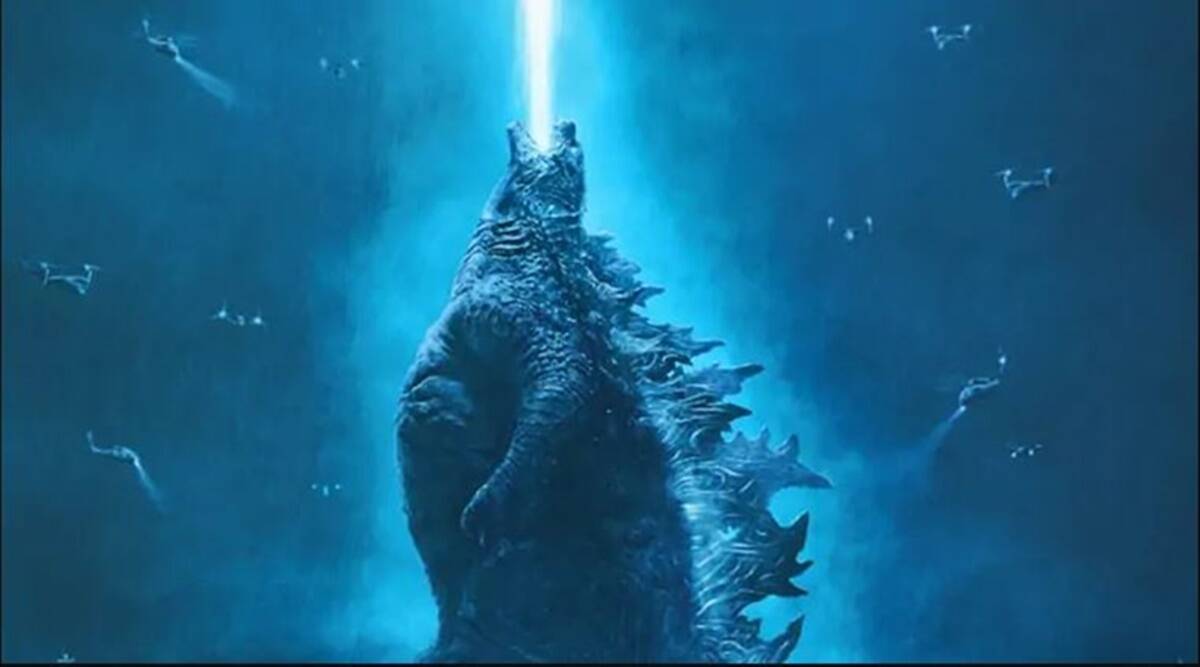
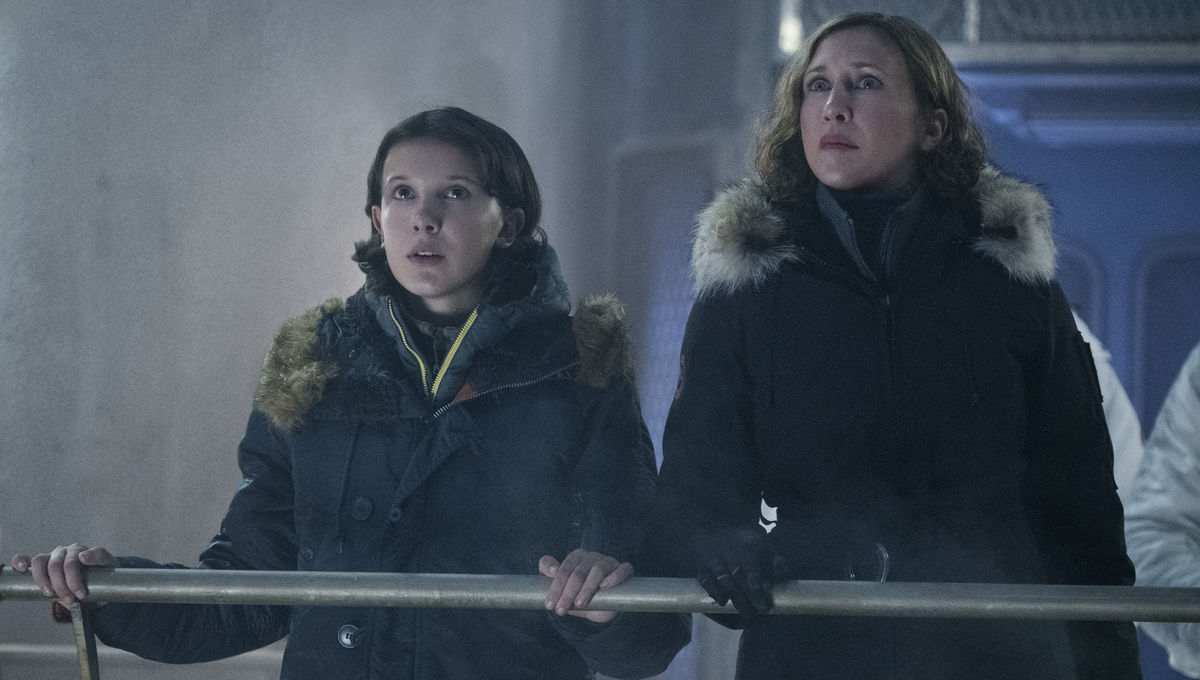
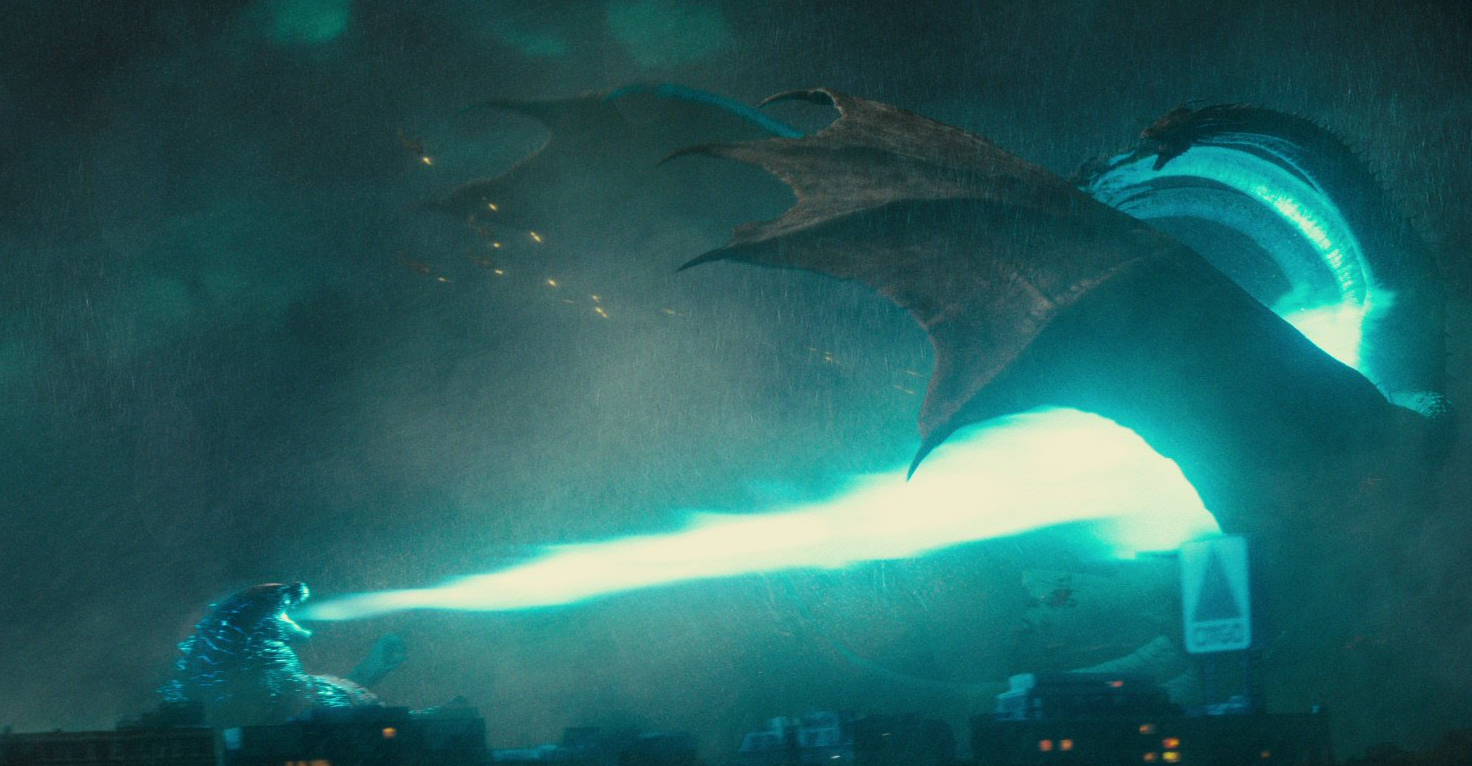
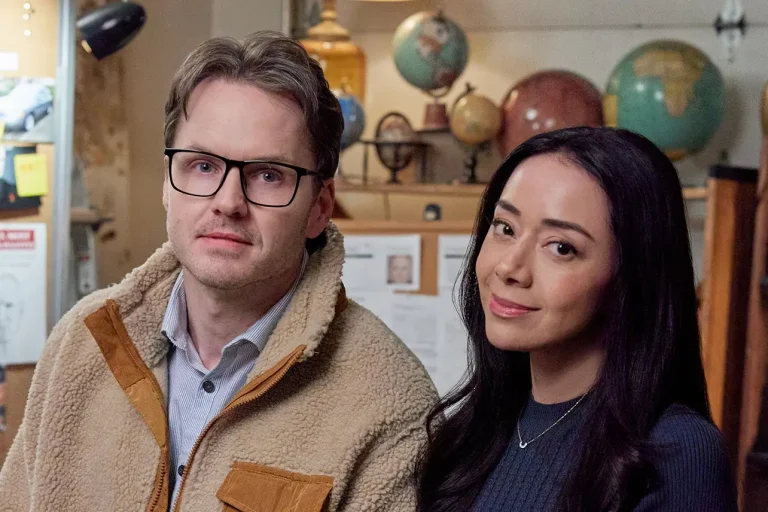
![[WATCH] Ready Or Not Trailer: Samara Weaving fights for Survival in a Deadly Game](https://79468c92.delivery.rocketcdn.me/wp-content/uploads/2019/06/Ready-Or-Not-Samara-weaving-768x321.jpg)
